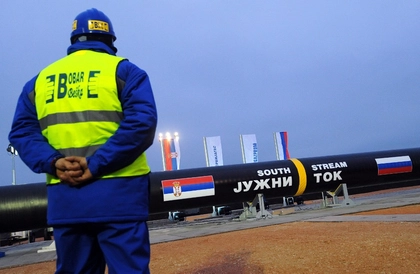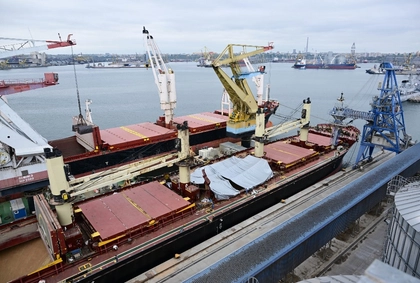Ukraine should leave open the option to transport Russian oil and gas through Ukraine. But the Ukrainian Gas Transmission System (GTS) and Ukrtransnafta should contract with the buyers rather than with Russian companies or the government. They should create a variable rate formula with a minimum rate plus an additional variable fee indexed to the European spot markets. The purpose of the formula is to set the value of the transit fee at least 10 times the profit for the Russian supplier. Preferably, it will take all the profits.
It may be possible to get Russian companies to continue gas and oil transit that covers their operating costs but provides little or no profit. It may be valuable enough to avoid the cost of shutting down and restarting many of Russia’s old wells or losing their skilled workers to accept a breakeven price or even modest losses. They may hope that the war will end soon enough that this will be less expensive.
JOIN US ON TELEGRAM
Follow our coverage of the war on the @Kyivpost_official.
Ukraine can provide this option to European buyers on the condition that it can be ended at short notice if necessary. The buyers will be placed in a position to pressure Russia for a discounted price to pay for the transit fees. Ukraine will not therefore be placed in the position of simply shutting off gas and oil to European buyers. A shutoff of supply will become Russia’s fault.
There are several other potential benefits. The GTS and Ukrtransnafta will receive revenue to maintain their systems and pay taxes to the Ukrainian government. The potential risk of a short notice supply interruption may encourage buyers to hedge with purchases from other sources. The imposition of a spot price linked fee will make it difficult to give buyers a “political payoff” rate without incurring greater losses.

Medical Reform: Will Ukrainian Scientific Institutions be Converted into Hospitals?
Make Ukraine and Poland the only path for exports. Ukraine can ask Poland to establish the same fee policy for oil products that transit through the North Druzhba pipeline. It isn’t possible to attack this pipeline without risking bringing Belarus into the war. Ukraine should aggressively attack the remaining Russian oil and gas export infrastructure that doesn’t support transit through Ukraine.
In 2023, Ukrtransnafta doubled the fee for Russian oil transiting through the South Druzhba pipeline. A variable rate as described here may be a way to capture more revenue and sap Russia of revenue. This is most likely if Ukraine has an aggressive campaign against Russia’s oil infrastructure, leaving Druzhba as the last remaining outlet for Russian exports. Even before this campaign is completed, oil prices will rise as Russian exports decline and the world sees the trend.
There is little benefit for Russia to attack the Ukrainian GTS and South Druzhba if they are using it. Threatening the Ukrainian pipelines is counterproductive. Long-term, they will need these pipelines if Ukraine destroys their other oil and gas export infrastructure. There are no reasons for Ukraine to refrain from destroying other Russian oil and gas infrastructure short of a favorable peace treaty.
Because of Ukrainian attacks elsewhere, Russia may need to send more oil and gas through Ukraine to provide enough subsistence to keep their remaining infrastructure operable and available for postwar use, as well as trying to retain some share of the global market. That said, Russia may seek to minimize the revenue earned by Ukraine and sell more during off-peak usage times. But this could help stabilize European energy markets and bring energy prices and inflation down for the EU and for Ukraine.
An optimal fee formula will force the Russian oil and gas companies to operate at a loss and adjust for whatever the spot prices are in the EU. The losses may place pressure on the Russian government to use the taxes received from workers to shore up the companies rather than for military expenditures.
This proposal leaves Russian President Vladimir Putin with a dilemma: shut off oil and gas to the few “friends” in Europe still willing to buy from Russia, or help Ukraine and the EU in order to retain some influence with his “friends.” Hopefully he will be assessing his choices while watching the destruction of Russia’s other oil and gas infrastructure.
The views expressed are the author’s and not necessarily of Kyiv Post.
You can also highlight the text and press Ctrl + Enter






